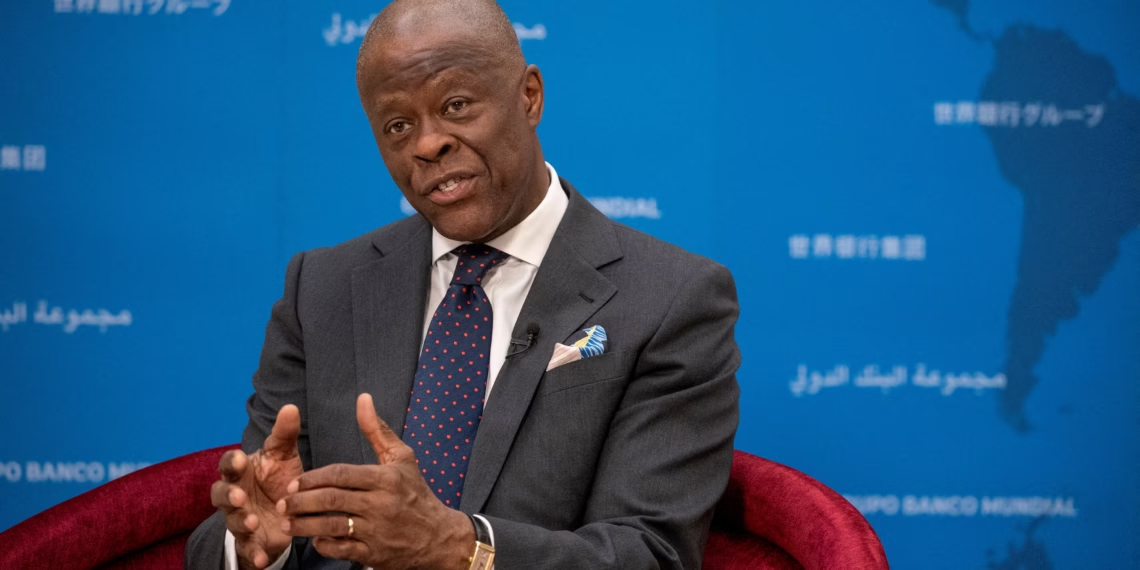In a revelation that exposes Nigeria’s widening financial gap, the Nigeria Deposit Insurance Corporation (NDIC) disclosed that 99.4% of all bank accounts in the country hold less than ₦500,000; the previous maximum insured limit per depositor. The figure, originally drawn from data between 2016 and 2019, paints a grim portrait of economic stagnation and deep-rooted inequality in a nation of over 220 million people.
Key Highlights:
- 99.4% of bank accounts hold less than ₦500,000.
- Just 0.6% of Nigerians control most bank deposits.
- Inflation above 30% and naira devaluation have worsened the crisis.
- Wealth concentration hinders growth, jobs, and financial stability.
While Finance Minister Wale Edun suggested in 2024 that around 5% of Nigerians now possess balances above ₦500,000, the broader reality remains unchanged: the financial weight of the nation rests in the hands of a minute elite, leaving millions living paycheck to paycheck.
A Deepening Divide
According to NDIC data, out of roughly 138 million active bank accounts, nearly all fall below the ₦500,000 mark. This means that just 0.6% of account holders command the overwhelming majority of total deposits. Reports indicate that 2% of Nigerians hold 90% of the nation’s total banked wealth, highlighting a concentration unseen in most developing economies.
By December 2022, Nigeria’s total deposits reached ₦44.99 trillion, yet much of this money remained concentrated in the hands of a few, rather than circulating through productive sectors. The effect, experts say, is an economy starved of inclusive growth and sustained capital flow.
The Human Cost of Financial Inequality
For the average Nigerian, these figures translate into daily struggles:
Hand-to-mouth living where one emergency can erase years of savings.
Debt dependence on digital lenders and informal networks.
Delayed milestones such as education, homeownership, and entrepreneurship.
Psychological strain from persistent financial insecurity.
Women and rural dwellers are especially affected. While mobile banking has widened access to accounts, it has not improved income levels.
Read Also:
- NDIC kicks off nationwide auction of Heritage Bank properties
- ICPC sensitises NDIC’s management, staff on Corruption
- NDIC chairman canvasses more management positions for women
The implications extend beyond individuals. The lopsided deposit landscape cripples national development:
Weak Capital Formation: With limited grassroots deposits, banks prefer government securities over lending to small businesses, weakening private-sector growth.
Rising Inequality and Instability: A small elite holds disproportionate control, intensifying public frustration and social risk.
Systemic Banking Risk: Concentrated deposits make the financial system fragile and vulnerable to shocks.
Increased Foreign Reliance: Low domestic savings force dependence on foreign loans and speculative capital.
The result is a paradox: a resource-rich country where most citizens remain financially powerless.
Charting a Path Forward
Experts recommend targeted reforms:
Curb Inflation: Strengthen Central Bank autonomy and control money supply.
Empower MSMEs: Channel affordable loans to small businesses and farmers.
Promote Savings: Introduce tax breaks for long-term deposits and expand NDIC insurance coverage to ₦5 million.
Wealth Redistribution: Implement progressive taxation on luxury consumption.
Financial Education: Encourage citizens to save, invest, and plan for long-term growth.
A Wake-Up Call for Policymakers
The NDIC’s revelation is more than a statistic — it is a national alarm. Nigeria’s ambition to achieve a $1 trillion GDP by 2030 will remain hollow if 99.4% of its people remain financially trapped. Empowering the base of the economic pyramid is no longer optional; it is the only route to sustainable prosperity.






